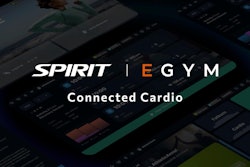Source: Korrio
SEATTLE, WA and BOSTON, MA (February 14, 2012) - Korrio and Axon Sports released today the results of the inaugural Youth Soccer Coaches Concussion Awareness Survey, aimed at gaining valuable insights into youth soccer coaches awareness of concussions and concussion management tools. The survey, which polled more than 250 youth soccer coaches from around the country, revealed 75 percent of youth soccer coaches are "very" or "extremely" aware of sports-related concussions in youth sports, and more than 80 percent of respondents indicated their organizations have an established set of guidelines pertaining to player concussions. The survey also showed that coaches have a gap in concussion management knowledge, with only half of the respondents indicating familiarity with baseline testing, widely considered a best-practice protocol for concussion management.
Korrio and Axon Sports will be unveiling the full results of Youth Soccer Coaches Concussion Awareness Survey later this week at the US Youth Soccer Workshop (booth #214), which takes place February 16-18, 2012, at the Hynes Convention Center in Boston, MA.
While the survey results among the coaches for concussion awareness and guideline settings are encouraging, more education is needed regarding both overall awareness and, more significantly, baseline testing for youth athletes.
"We were certainly encouraged by the high-level of concussion awareness, but with 25 percent - that's one in four - coaches still professing a lack of awareness regarding serious brain injuries to young athletes, we believe there is still a lot of work to do," said Steve Goldman, CEO of Korrio. "That is particularly true with regards to baseline testing, which is a standard measure to assist medical practitioners in caring for injured players and making return-to-play decisions following a concussion. With the growing availability and affordability of baseline testing for youth athletes, there is no reason why any coach should not be aware of its benefits. Every player should have a baseline test for concussion management."
The Korrio and Axon Sports Youth Soccer Coaches Concussion Awareness Survey, conducted Nov. 1 through Dec. 31, 2011, polled a mix of United States-based youth soccer coaches at all levels of the sport. The survey was designed to gauge youth soccer coaches' level of concussion awareness and the strength of related organizational guidelines, protocols, education and training.
Knowledge Gap in Concussion Management Tools a Concern Survey results showed 49 percent of the responding coaches were not familiar with baseline testing for concussion management and only 20 percent have personally recommended baseline testing to players or parents. More than 84 percent of the coaches responded that their league, club or team does not currently recommend baseline testing for their players.
Baseline concussion testing is one of the most tangible concussion management tools available and is an industry standard, at the professional and collegiate level. Players take a baseline test prior to the start of the season to measure cognitive brain functions including attention, processing speed, and working memory for comparison to future results in the event of a head injury.
Traditionally a protocol that required doctor visits, baseline testing today can be administered through online tools, reducing the cost and increasing access for families.
"Baseline testing is a very simple and effective method for measuring cognitive brain functions and managing the return of players suffering from concussion symptoms," said Axon Sports President and CEO Polly James. "It is a protocol that should be familiar to every coach and volunteer in youth sports, as well something parents and players should be very familiar with. These survey results indicate there is still education to do on a fundamental step to advance safety."
Survey Reveals Lack of Education for Parents The survey also reveals a gap in concussion awareness and education when it comes to the parents of youth soccer players. Of the coaches surveyed, only 56 percent reported their organizations offer some kind of concussion awareness education for parents.
Parents are crucial in the concussion diagnostic and recovery process, since they have more day-to-day exposure to their children than coaches. Educating parents regarding the signs of a possible concussion, as well as the stages of recovery, where they can help prevent the recurring damage that can occur when a child returns to sports too early after suffering a concussion is critical.
"While this survey focused on coaches, it is clear that parents play a key role in concussion management, and should be included in every step of the process," said Korrio's Goldman.
































